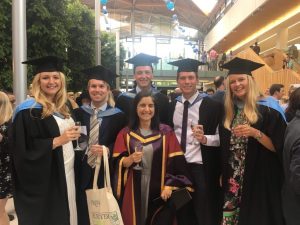Portuguese was celebrated throughout last week in many Portuguese-speaking countries as the 5th May has been officially proclaimed by UNESCO as the “World Portuguese language day”. Portuguese is one of the most widespread languages in the world with over 240 million speakers across eight countries and four continents. According to the United Nations, it is estimated that in 2050 the number of speakers will rise to nearly 400 million. Celebrating Portuguese means celebrating cultural diversity and multilingualism. It is also a moment of critical reflection on the shared (and often troubled) histories and on the complexities of the use of Portuguese, which has, over time, coexisted, displaced and mixed with other languages. It is against this backdrop that we also celebrate Portuguese at the University of Exeter precisely in the same spirit; studying Portuguese at Exeter goes beyond the understanding of the language and the associated diverse cultures within the boundaries of the nation-state and embraces the wider Portuguese-speaking space and its complex relations.
Portuguese Studies at Exeter was launched as a programme in 2014. Even though students at Exeter could learn Portuguese language up to intermediate level as part of the BA in Spanish, 2014 saw the first cohort of students in Modern Languages and Cultures who would successfully graduate in 2018. These students and the following cohorts of students acquired more than the two standardised varieties of Portuguese (European and Brazilian Portuguese) up to advanced level; they also engaged, through literature, film and linguistics, with the multiple realities, identities, cultures and the intertwined histories that have had a profound impact, still visible today, on the societies and cultures as well on the linguistic make-up of the Portuguese-speaking world. For most of them, the Luso-Afro-Brazilian Studies was completely uncharted territory.
The year abroad (YA) is a turning point. Exeter has a student exchange scheme with partner universities in Portugal (University of Porto and the University of Coimbra) and Brazil (UFCB – Federal University of Santa Catarina, Florianópolis). Many students have also taken up working placements in Portugal (e.g. law firms, translation companies) and in Brazil (e.g. translation and proof-reading companies, working for NGOs and charities). Upon their return, they have honed their linguistic skills, speaking very distinctively either European or Brazilian Portuguese, some of them at a near-native level (see one of our 2019-20 finalists talking about his studies, the university and the city). Being a small unit offers the experience of a tight-knit community of students in which, for example, students on their YA, via video link, and final-year students share their YA experiences with second-year students.
After the YA, some students have opted to write a dissertation, deepening their knowledge on some aspects of the Portuguese-speaking world, for example on postcolonial varieties of Portuguese, Cuban-Angolan relations and the impact of the Angolan civil war in the second generation presented in literature vs. official narratives, the Tropicália movement in Brazil, the representation of the favela in film.

In these uncertain times, there’s a real urgency to train the current generation of students to think beyond national boundaries, beyond a monolithic view of language, and to think about the world from an alternative paradigm to the European, white, male-dominated discourse. This is at the core of the Luso-Afro-Brazilian studies at Exeter and of our commitment to current and future generations of students of Portuguese.

Recent Comments